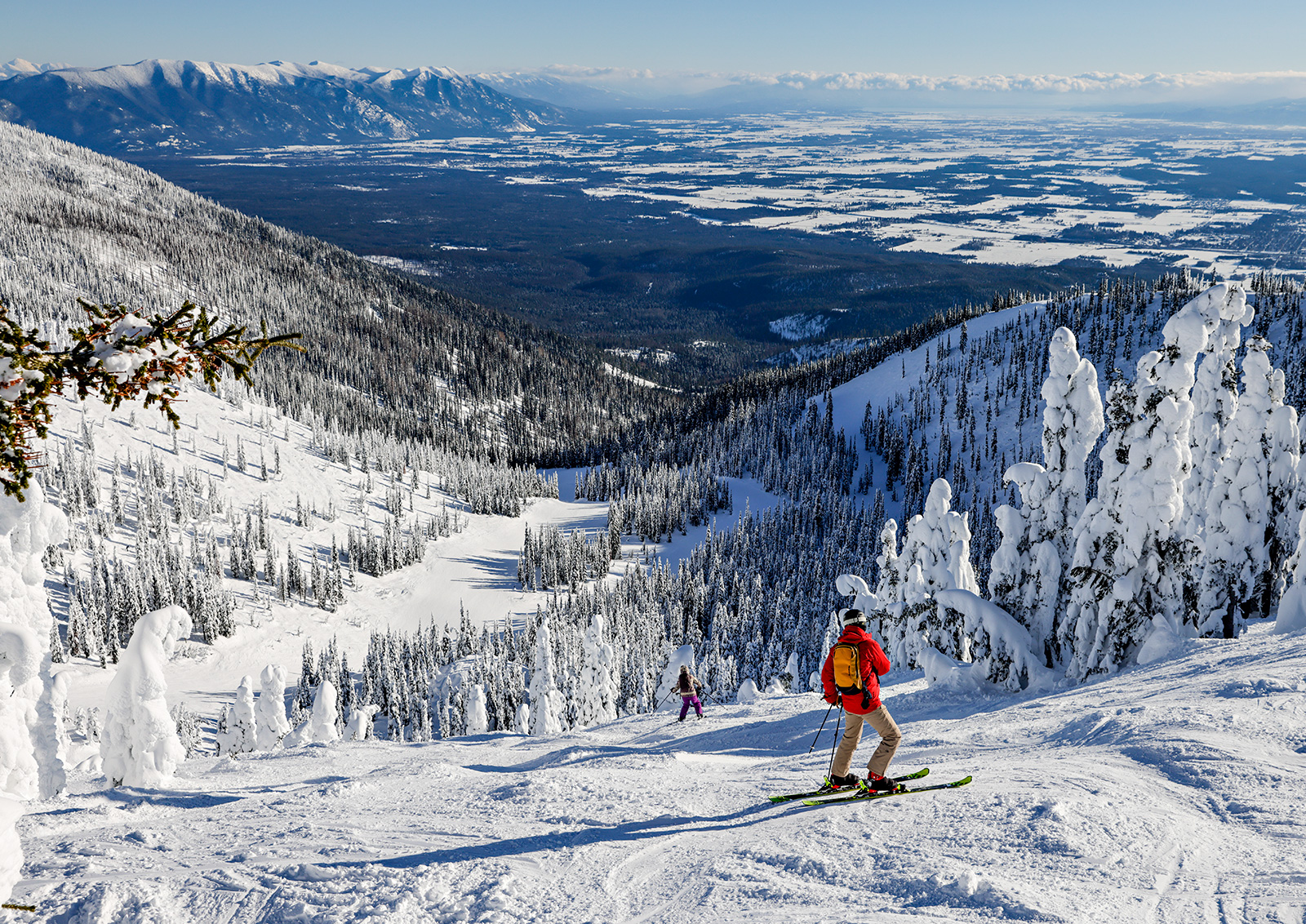Report Projects Montana's Economic Losses Due to Climate Change
RECREATION
Report Projects Montana’s Economic Losses Due to Climate Change
The report estimates the state will lose 8,800 outdoor recreation jobs and $263 million in labor earnings annually if nothing is done to mitigate climate change
BY MICAH DREW
NOVEMBER 1, 2023

A bluebird day on Big Mountain at Whitefish Mountain Resort on Jan. 29, 2023. Hunter D’Antuono | Flathead Beacon
Montana’s economy is projected to see a significant impact stemming from the state’s changing climate over the next 50 years, according to a
new report commissioned by Helena-based conservation nonprofit Montana Wildlife Federation (MWF), centered around the tourism and outdoor recreation industries.
The report, prepared by Power Consulting Incorporated, predicts a potential loss of 8,800 outdoor recreation jobs and $263 million in labor earnings annually between 2040 and 2069 due to climate change in Montana. The tourism industry, anchored by Glacier and Yellowstone national parks, accounts for the majority of the state’s impacts.
“Montana’s hunters, anglers and outdoor enthusiasts are the first to witness the changing climate’s tangible effects,” MWF Executive Director Frank Szollosi said in a press release. “We are the frontline observers. Every altered migration route, impacted rut and every intensified wildfire is a chapter in the story of our changing climate. Many Montanans derive their livelihoods from these outdoor sectors, making the stakes even higher. What we witness is a testament to the urgent need for informed climate policies that prioritize the preservation of Montana’s rich wildlife and landscapes.”
Using data form the Intergovernmental Panel on Climate Change 6th Assessment, the 4th National Climate Assessment and the Montana Climate Assessment, the report models the effects of climate change across the state if no strategies are implemented to decrease greenhouse gas emissions, a “business as usual” scenario, and how various sectors of Montana’s economy will be affected. Industries that rely on natural commodities — namely tourism and recreation — see the biggest impacts.
{snip}